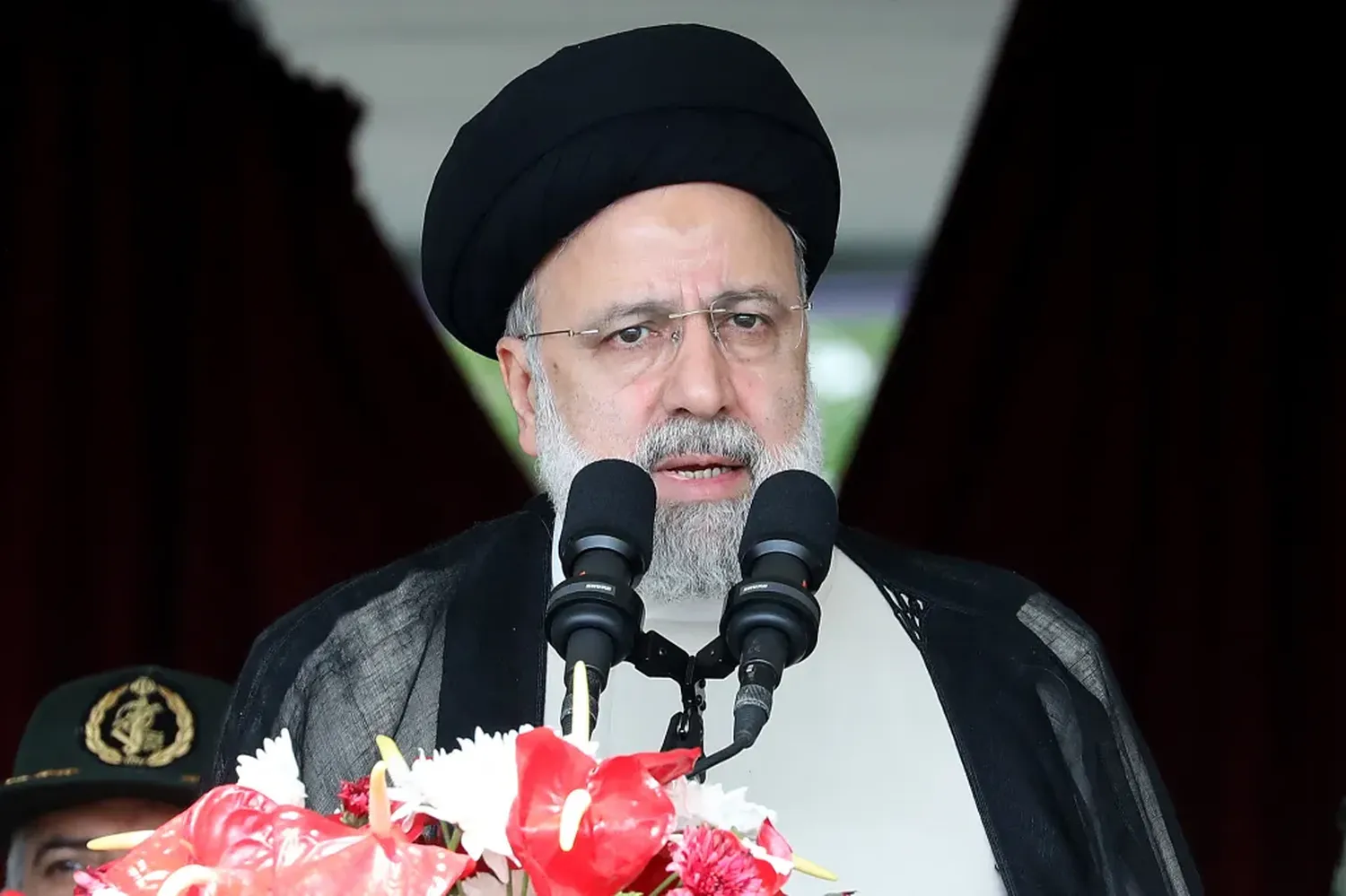Israel-Gaza War
Iran's President Warns of 'Massive' Response if Israel Retaliates for Attack
In a significant escalation of tensions in the Middle East, Iran's President Ebrahim Raisi issued a stern warning to Israel and its allies, promising a "massive and harsh response" should Israel retaliate against Tehran's recent drone and missile attacks. The warning comes in the wake of an unprecedented assault on Israeli territory, marking a new chapter in the long-standing animosity between Iran and Israel.
The Iranian attack, which took place over the weekend, saw the deployment of a vast arsenal of missiles and drones primarily from Iranian territory, as well as from Iran-backed groups in various neighboring countries. According to the Israel Defense Forces (IDF), the onslaught included hundreds of projectiles, which were met with resilient defense mechanisms. Virtually all incoming missiles and drones were intercepted before breaching Israeli borders, resulting in "very little damage." However, a 7-year-old girl from a Bedouin village in Israel's Negev desert sustained severe injuries from shrapnel and was still fighting for her life on Monday.
Iran's strategic objective, as disclosed by two U.S. officials to CBS News national security correspondent David Martin, was to overwhelm Israeli and U.S. air defenses with drones and cruise missiles, paving the way for the deployment of Iran's ballistic missiles. The attack unfolded over several hours, with alerts sounding across Israel around 2 a.m. local time on Sunday.
In response to the attack, President Raisi, alongside Iran's military chief, Major-General Mohammad Bagheri, issued warnings to Israel and the United States. Raisi cautioned that a more substantial response would be meted out if Israel or its supporters respond aggressively. This warning followed a similar one from Bagheri, who warned that Israel would encounter a 'much larger' response if it retaliates against Iran.
The commander of the Islamic Revolutionary Guard Corps (IRGC), Hossein Salami, echoed these sentiments, declaring that Tehran would retaliate against any Israeli attacks on its interests, officials, or citizens. Iran's permanent mission to the United Nations defended Tehran's actions as a 'legitimate defense' in accordance with the UN charter, adding that the conflict was an issue between Iran and Israel, and the US should 'stay away'.
The attacks on Saturday were a response to a suspected Israeli air strike on Iran's embassy compound in Damascus on April 1, which resulted in the deaths of IRGC members, raising the specter of a wider regional conflict. Israel reported modest damage and reopened its airspace following the unprecedented direct attack. The Israeli military claimed to have shot down over 99 percent of the Iranian drones and missiles, and discussions were ongoing regarding follow-up options.
Israeli Prime Minister Benjamin Netanyahu issued a brief statement, writing, "We intercepted. We blocked. Together we will win." Israel's defense chief, Yoav Gallant, warned in a televised statement that the confrontation with Iran 'is not over yet'. An unnamed Israeli official was quoted by Israel's Channel 12 TV as saying there would be a 'significant response' to the attack.
Despite the escalating rhetoric, one Iranian analyst, Farzan Sabet, a senior researcher at the Geneva-based Global Governance Centre, suggested that Israel could potentially de-escalate the situation by making a 'largely symbolic and non- or only slightly lethal response'. However, given Israel's 'historically low threat tolerance and practice of disproportionate response,' further retaliations and escalations could not be ruled out.
As the situation remains fluid, the international community watches closely, hoping for a de-escalation of tensions in a region already fraught with conflict.

